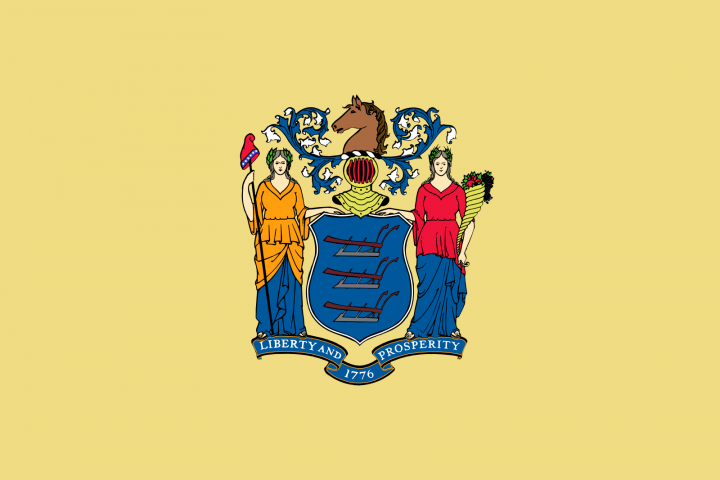How to Become an Ordained Minister in New Jersey
If you haven't yet become ordained with the Universal Life Church, that is the first step. Anyone willing can become a legal minister of the ULC, one of the world's largest religious organizations. Online ordination is fast, easy, and completely free. Once you have your minister license, you'll be eligible to officiate a wedding. To become a minister, start by clicking the button below!
Video Walkthrough: Performing a Wedding in New Jersey
Okay, you've reached the end of the New Jersey wedding guide! We get it – that was a lot of text to absorb. Did you know we have a full video series on how to get ordained to officiate a wedding in each state? Check out the video guide for performing a wedding in New Jersey below!
How to Officiate a Wedding in New Jersey
Contact your Local Registrar's office. Introduce yourself as a minister officiating a wedding, and ask them what documents they will need from you. Minister registration is generally required if you are not a resident of New Jersey. Even if you are a resident, there's a possibility that the Local Registrar will ask you to present proof of your ordination, so it's best to be prepared. Rest assured that any materials or documents you might need are available in the Church Supplies section of our website.
Select your town/municipal to view contact information for each office:
Officiant Requirements in New Jersey

The New Jersey state flower, the Violet
Once you've determined what you need, simply log in to your account and order the materials from our online catalog. Based on the feedback we've received from our ministers in New Jersey, we recommend getting a Ordination Kit and a Letter of Good Standing. Please remember to place your order well in advance of the wedding to avoid complications. Keep in mind that the couple may also like to see your ordination credentials!
How to Get a New Jersey Marriage License
Licenses are issued by the Local Registrar's office, and will be picked up by the couple. As a minister, it's your responsibility to understand how marriage licenses work in New Jersey and its individual counties. For example, if the couple plans to get a Bergen County marriage license, you should double-check if there are any rules specific to Bergen County.
In the state of New Jersey, the license is valid for 30 days. There is a mandatory 3-day waiting period between the time it is picked up, and when the ceremony can be legally performed. Finally, the signed marriage license must be returned to the issuing office before it expires.
How to Perform a Wedding
Congratulations! You're all set to officiate a wedding. If you could use a little guidance on the officiating process, the resources below are here to support you. Created specifically for ULC ministers, they’re full of useful tips, ideas, and inspiration for every stage of the ceremony. Whether you're celebrating a loved one’s big day or exploring a new path, these tools will help you deliver a ceremony that’s heartfelt and unforgettable. (Bonus: many ULC ministers got their start with these same resources!)
Finalizing the Marriage
After you perform the ceremony, you will sign the marriage license along with the couple and their two witnesses. Your title is 'minister', the ceremony type is 'religious', and the denomination is 'non-denominational'. You will not be required to provide a license number. You may also wish to give the couple a commemorative gift, like a marriage certificate to mark their special day. Last thing: make sure the signed license gets resubmitted to the marriage office before the deadline!
New Jersey Marriage Laws
Marriage laws in New Jersey are primarily directed by Title 37 of the state code. This section defines persons authorized to perform a marriage in the State of New Jersey, which includes ordained ministers of the Universal Life Church, among other individuals. We've reproduced the relevant portion below:
37:1-13 Authorization to solemnize marriages 37:1-13. Each judge of the United States Court of Appeals for the Third Circuit, each judge of a federal district court, United States magistrate, judge of a municipal court, judge of the Superior Court, judge of a tax court, retired judge of the Superior Court or Tax Court, or judge of the Superior Court or Tax Court, the former County Court, the former County Juvenile and Domestic Relations Court, or the former County District Court who has resigned in good standing, surrogate of any county, county clerk and any mayor or the deputy mayor when authorized by the mayor, or chairman of any township committee or village president of this State, and every minister of every religion, are hereby authorized to solemnize marriage between such persons as may lawfully enter into the matrimonial relation; and every religious society, institution or organization in this State may join together in marriage such persons according to the rules and customs of the society, institution or organization.
New Jersey marriage laws are governed by New Jersey Permanent Statute 31. Many of the requirements of New Jersey's wedding laws are similar to other states. In order to obtain a marriage license, you must have appropriate identification such as certified copies of birth certificates, passports or drivers' licenses. United States citizens will also need to furnish their Social Security numbers. If you are under the age of eighteen, you must have your parent's consent to the marriage in front of two witnesses. If you are under the age of sixteen, judicial consent is necessary. The fee for a marriage license is $28.
If you have been previously married, you must supply the county clerk with a copy of your divorce decree if it has been finalized in the last thirty days, or a copy of the death certificate of your former spouse if your spouse passed away in the last thirty days. The wedding officiant will be required to furnish his or her ordination papers to the county clerk as well as his or her current contact information. Covenant marriages and proxy marriages are not permitted according to New Jersey wedding laws though marriages between first cousins are permitted. The ULC Monastery strongly advises that its ministers check with the local county clerk where you intend to perform a marriage ceremony for any county-specific requirements.
There is no residency requirement to marry in New Jersey for the bride, groom or an online ordained minister; ULC Monastery ministers from outside New Jersey are thus free to perform ceremonies there. However, if either the bride or groom is a resident of New Jersey, the couple should obtain a marriage license in the county where the bride lives. If the bride is not a resident, according to New Jersey wedding laws the couple must apply for a marriage license in the county where the groom lives. If neither are residents of the state, obtaining a marriage license from the county clerk where the ceremony will be held is acceptable. Military personnel are considered to be residents in the county where they are posted. After the wedding license is issued, there is a three day waiting period. Re-marriages or renewal of vows are exempt from the three day waiting period.
View the New Jersey Statutes on the official government state website.
How Do you Legally Perform a Wedding in New Jersey?
See the NJ Marriage CodeAre you Interested in Being an Ordained Minister in New Jersey?
Learn About NJ OrdinationBecome an Ordained Minister Today
Be Ordained Now